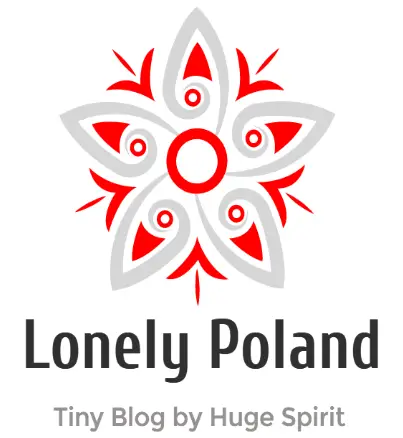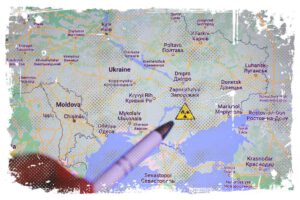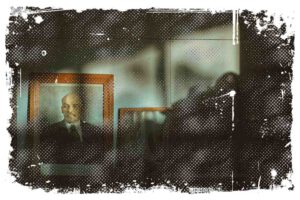It’s alarming to hear that there are some people who question the existence of Poland as a real country. However, it’s important to remember that not everyone has access to accurate information, and some may be misinformed or uninformed about the facts.

Poland is a sovereign nation located in Europe with a long and rich history dating back hundreds of years. It is recognized by other countries as a legitimate and independent state. There is no doubt that Poland is a real country. Please read the article I wrote on how Poland became a country in Europe. You will learn how it developed from a small tribe to a great state.
It’s possible that some media publications may be misleading or confusing, but it’s important to rely on reliable sources for accurate information. Don’t let misinformation or a lack of knowledge about Poland be spread. Here are a few examples where we can clearly see that people discuss such things as Poland not being a country in Europe. Here is an article about that: https://darnton.co.nz/2019/04/12/is-poland-a-real-country/
Here you can see similar Quora discussions: https://www.quora.com/Why-is-Poland-considered-a-country
↳ PRO TIP: Do you like traveling? Then before you buy any ticket or book an attraction, check if it's available in this worldwide Viator Database. You may save a lot of money and time. No need to thank me :)
The Influence of Propaganda
Propaganda is often associated with lies, indoctrination, and interference in the views, beliefs, and behavior of citizens. This association developed in the 20th century, when propaganda became a characteristic of totalitarian states. In the past, propaganda was mainly used by the regimes of Soviet Russia and fascist Germany and Italy as a tool for manipulating the public. However, the original meaning of the term propaganda is the propagation and dissemination of information, as translated from Latin. Since the 19th century, propaganda has also been used as a tool in the struggle for political power.
Unfortunately, it is not uncommon to come across propaganda on the internet that suggests Poland is not a real state. These types of texts may be written in order to spread misinformation or damage Poland’s reputation. It is important to be critical of the information we come across on the Internet and verify it with reliable sources before sharing it. It is also important to remember that every country has its own unique history, and it is important to respect it. Another example, this time created by Russians, might be found here:
The archive of the Sputniknews.com website includes an article written by Russian journalist Leonid Swiridow, in which he claims that Poland is not a country in the view of other European states. He states: „Currently, Poland is not an independent country as it entirely depends on the United States in a political and military way, and on Germany in an economic way. It means that Poland is not able to implement an independent foreign policy”.
However, it is important to note that this statement is not accurate. Poland is a sovereign nation that has the ability to determine its own foreign and domestic policies. As a member of both NATO and the European Union, Poland plays a role in shaping the laws of these organizations and is able to implement its own policy. It is crucial to rely on reliable sources of information and not let misinformation or incorrect statements undermine the sovereignty and independence of any country.
Another example of such misinformation might be found, for example, here: https://euvsdisinfo.eu/report/the-us-keeps-poland-on-anti-russian-leash/
From this article, we find out that Poland is held on a leash by the U.S. government. Also, it is the USA that stands behind the conflict between Poland and Russia. Obviously, none of this is true.
The Role of the Media in Perpetuating Facts About Poland
The media play a significant role in shaping public perception by providing information to a wide audience and influencing the focus of public attention on certain issues, people, or organizations. The theory of the „order of the day” suggests that the topics that are most prominently featured in media messages gain the greatest resonance in public opinion.
To emphasize the relative importance of facts presented in media messages, various signals are used. One such factor may be the position of the issue in the content layout, the size of the headline, and the length of the information. The effect is amplified when similar issues are given a similar place in the structure of content across different media. By structuring their messages this way, the media can influence the subject matter of public discourse and affect perceptions of individual issues.
The media plays a significant role in shaping public opinion by determining the hierarchy of certain issues. This „order of the day” can have far-reaching consequences as it influences what the public sees as important. Those issues given more prominence in media coverage are perceived as more important, while less prominent issues are pushed to the background.
It is essential to get accurate information about the world from trustworthy sources. In today’s world, there is a lot of false or misleading information being spread in various forms, such as fake news, propaganda, or conspiracy theories. It is important to be cautious of the information we come across and verify it with reliable sources. We should also be aware of potential biases in the sources we use. By being informed and careful, we can help stop the spread of disinformation and promote accurate ones.
The Importance of Not Spreading Misinformation
Fake news has the potential to spread quickly, like a snowball, and can reach millions of people even if it starts with a small network or group. While it may not be possible to completely stop the spread of fake news, there are steps you can take to protect yourself and those around you from its consequences.
Social media platforms can contribute significantly to the spread of fake news. It is important to educate others about the potential dangers of believing unverified information online and to use the „like” or „share” option wisely. Avoid adding to the spread of misinformation by carefully verifying the content of tweets or posts before sharing them, even if they appear to be for a good cause. Sharing unverified content can contribute to the blurring of the real picture of a situation.
Conclusion
It is possible for people to have a misleading view about Poland due to misinformation in the media. In today’s world, there is a vast amount of information available online, and it can be difficult to determine what is accurate and what is not. It is important to learn how to verify information and not blindly believe everything we come across on the internet. This requires being critical of the sources we get our information from and looking for multiple perspectives on a given topic. By learning how to verify information, we can help combat the spread of disinformation and promote a better understanding of the world around us.
Bibliography:
- https://www.gov.pl/web/special-services/the-lies-of-russian-propaganda




